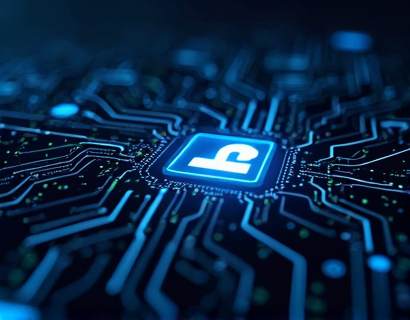Advanced Legacy File Password Recovery: Unlocking Forgotten Data with Cutting-Edge Technology
In the fast-paced world of technology, the ability to recover lost data efficiently and securely is paramount for tech-savvy professionals and businesses. Legacy files, often containing critical information, can become inaccessible due to forgotten passwords or encryption methods that are no longer supported. This article delves into the advanced techniques and technologies that empower users to recover lost data from legacy files, ensuring seamless access while maintaining the highest standards of data security.
Understanding Legacy Files and Encryption
Legacy files are documents, images, and other data types created using older software applications or file formats that are no longer supported by current systems. These files often contain valuable information, but accessing them can be challenging, especially when the original passwords or encryption keys are forgotten. Modern encryption methods, such as AES (Advanced Encryption Standard) and RSA, provide robust security but also pose significant barriers to recovery when keys are lost.
The Importance of Data Recovery for Productivity
For businesses and professionals, the loss of access to legacy files can be devastating. Critical documents, historical data, and intellectual property can be locked away, leading to decreased productivity and potential loss of competitive edge. The ability to recover these files quickly and securely is essential for maintaining operational efficiency and ensuring that vital information remains accessible. Advanced legacy file password recovery solutions play a crucial role in mitigating these risks.
Advanced Decryption Software: Features and Capabilities
Modern decryption software is designed to tackle the complexities of legacy file recovery. These tools employ a range of advanced features to ensure successful recovery, including:
- Multi-format support: Compatibility with various file types and encryption methods
- Brute force and dictionary attacks: Systematic attempts to guess passwords
- Rainbow table attacks: Precomputed hash tables for faster cracking
- Key recovery techniques: Methods to derive encryption keys from weak or default passwords
- User-friendly interfaces: Intuitive designs for easy navigation and use
- Batch processing: Ability to handle multiple files simultaneously
- Logging and reporting: Detailed records of recovery attempts and outcomes
These features collectively enhance the effectiveness of recovery efforts, making it possible to unlock even the most secure legacy files.
Techniques for Recovering Forgotten Passwords
Recovering forgotten passwords is a critical aspect of legacy file recovery. Several techniques are employed by advanced decryption software to achieve this goal:
1. Brute Force Attack
Brute force attacks involve systematically trying every possible combination of characters until the correct password is found. While this method can be time-consuming, especially for strong passwords, it is reliable and can be optimized with parallel processing and hardware acceleration.
2. Dictionary Attack
Dictionary attacks use a list of common words and phrases to guess passwords. This method is faster than brute force but less effective against strong, unique passwords. Combining dictionary attacks with common password patterns can significantly increase the chances of success.
3. Rainbow Table Attack
Rainbow table attacks precompute hash values for common passwords and store them in a table. When a hashed password is encountered, the software can quickly match it against the table to find the original password. This technique is particularly effective for older, less secure hashing algorithms.
4. Key Recovery
Some encryption methods allow for key recovery using techniques like dictionary attacks on weak keys or exploiting default passwords. Advanced software can automate these processes, making key recovery more efficient and reliable.
5. Social Engineering
In some cases, social engineering techniques can be used to obtain passwords indirectly. However, this approach is ethically questionable and should be avoided unless explicitly authorized by the data owner.
By leveraging these techniques, advanced decryption software can effectively recover forgotten passwords and unlock legacy files, ensuring that critical information is accessible when needed.
Ensuring Data Security During Recovery
While recovering lost data is essential, maintaining data security is equally important. Advanced decryption software incorporates several security measures to protect sensitive information during the recovery process:
- Encryption of recovery tools and data in transit
- Access controls and user authentication to prevent unauthorized use
- Audit logs to track recovery activities and ensure accountability
- Compliance with industry standards and regulations, such as GDPR and HIPAA
- Regular updates and patches to address security vulnerabilities
These security measures ensure that while recovering lost data, the integrity and confidentiality of the information are preserved.
Enhancing Productivity with Advanced Recovery Solutions
The ability to quickly and securely recover legacy files can significantly enhance productivity for tech-savvy professionals and businesses. By eliminating the barriers posed by forgotten passwords and encryption, users can:
- Access critical documents and data promptly
- Reduce downtime and minimize disruptions
- Focus on core business activities rather than data recovery
- Improve collaboration and information sharing
- Maintain a competitive advantage by ensuring continuous access to vital information
Advanced recovery solutions streamline the recovery process, allowing users to regain access to their files with minimal effort and maximum efficiency.
Case Studies and Real-World Applications
To illustrate the practical benefits of advanced legacy file password recovery, consider the following scenarios:
Case Study 1: Legal Firm
A legal firm faced a critical situation when a partner accidentally deleted a folder containing years of case documents, all encrypted with an outdated algorithm. Using advanced decryption software, the firm was able to recover all files within a few hours, ensuring that ongoing cases were not compromised and client trust was maintained.
Case Study 2: Research Institution
A research institution lost access to a database of sensitive research data due to a forgotten password. By employing a combination of brute force and dictionary attacks, the institution's IT team successfully recovered the data, allowing the research to continue without significant delays.
These case studies demonstrate the real-world impact of advanced recovery solutions in preserving critical information and maintaining operational continuity.
Future Trends in Data Recovery Technology
The field of data recovery is continually evolving, driven by advancements in encryption, storage technologies, and user needs. Future trends include:
- Artificial Intelligence and Machine Learning: AI can optimize recovery processes by predicting the most effective recovery methods based on file types and encryption methods
- Cloud Integration: As more data moves to the cloud, recovery solutions will need to support cloud-based storage and encryption
- Quantum Computing: The rise of quantum computing may necessitate new encryption methods and recovery techniques to counter quantum-based attacks
- Enhanced User Authentication: Biometric and multi-factor authentication will become more prevalent, requiring recovery solutions to adapt to these new security measures
Staying ahead of these trends ensures that recovery solutions remain effective and relevant in an ever-changing technological landscape.
Conclusion
Advanced legacy file password recovery is a vital tool for tech-savvy professionals and businesses seeking to maintain access to critical information. By leveraging cutting-edge technology and robust security measures, these solutions provide a reliable means of unlocking forgotten data while preserving its integrity. As technology continues to evolve, the importance of advanced recovery solutions will only grow, ensuring that valuable information remains accessible and secure.











































